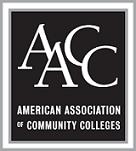How has the economic shift impacted your organization, your culture and your employees? With the significant changes in the world, is there any organization that has not had to make major changes in how they operate? Whether private or public, how our organizations work and how we determine success has changed. We have seen and heard of a lack of accountability in key financial areas with the integrity of important people or organizations being called into question. The level of accountability is even higher for organizations. Most organizations will look more at facilities, money and lose focus on their most valuable resources – their employees. Organizations are required to more with less. How do they do this while gaining commitment from employees who are looking for a work-life balance? How do we bring together employee and the organizations need with an eye to the return ratio?
Working with a large organization recently, I heard from several people that they operate in silos. Like so many organization, this one is at a cross roads, the status quo has been challenged. This organization has the opportunity to create a new future, if they pick up the challenge and engage in successful initiatives.
There is sound evidence that our happiness is directly linked to our psychological and physical well-being. The mid-century view from Maslow was “The science of psychology has been far more successful on the negative than on the positive side. It is as if psychology has voluntarily restricted itself to only half its rightful jurisdiction, and that, the darker, meaner half (Maslow, 1954, p. 354).” This century the focus is the understanding of human emotion and how positive psychology contributes to health and happiness. And in true scientific fashion, there is debate on what this means and what is the value, if any, of positive psychology.
Most organizations are still operating with the 1954 model! How organizations treat their stakeholders, how they engage dialogue during any change initiative determines the outcome of such an adventure. In the 2006 issue of The Journal of Positive Psychology, the authors challenged their peers. They laid out a plan for current and future psychologists to assess, to respond to and to potentially find applications within their practice. They brought in the stakeholders!
This change in psychology can be compared to the change within an organization, that it is inevitable and that the people in charge of such change have competence, legitimacy and passion for leading that change.
Working with individuals and organizations looking to Appreciative Inquiry for positive change we are now challenged to dig deeper into how change occurs within organization. We have experienced the high of a simple training exercise or full scale summit using AI. The energy and the employee engagement for change is there and it’s glorious and they are ready to take off. Does this excitement realize actual lasting change in organizational culture? Because the energy is there, the passion is highlighted, the shared values are expressed and open commitments are made, many people think this is it. That our work is done for this project is done. One day and that energy is now on auto-drive. The work indeed, is just beginning. The generative value of AI and how we maximize that value is crucial. Gervase Bushe in his research has found that this AI’s real power is in the ability to focus on the preferred future. He states “Rather than planning and controlling, leadership needs to look for any and all acts that move the organization in the desired direction and find ways to support and amplify those efforts. I call this tracking (looking for where what you want more of already exists) and fanning (adding oxygen to a small fire to create a blaze)” Bushe, OD Practitioner, Vol. 39, No. 4, pp30-35, 2007).
Change begins with employees and other stakeholders. Engaging employees in the Company story, finding what makes them happy and fills them with gratitude.
The organization noted earlier in this paper will need to gain commitment from their employees to create a silo-less culture. How they begin this inquiry is crucial. What do the employees see as their preferred future? By focusing on the positive does not mean that you do not evaluate problems and take any actions necessary to fix them. To understand what gives employees gratitude, appreciation and happiness you focus on what they want more of? How can we do things differently? What actions will employees commit to?
Organizations that succeed know that it is not about the perks – it’s about the culture. These organizations support the whole person and the whole person is engaged in the organization. The organization is seen by employees and clients as a community. Developing this type of organization is not a linear process but rather a meandering path that may have a few bumps along the way. Some tips for this organization and others who are seeking change:
Look at your culture: Do your employees live the culture? Do they have a belief in the organizational mission? Does the organization operate with integrity? Is learning valued in the organization?
Is there an emphasis on your most valuable asset – your employees? How is the whole balance of the employee viewed? Is management top-down? Flat? Does top management model the organizations values?
Are employees and stakeholders proud of the organizational mission? Does the mission speak of integrity, value and empowerment?
Organizations may or may not have the ability or skills to evaluate their effectiveness and their readiness for change. They may need advice on change management or how to facilitate dialogue through these changes by an experienced facilitator with a strong background in traditional organization development and Appreciative Inquiry. “AI can be generative in a number of ways. It is the quest for new ideas, images, theories and models that liberate our collective aspirations, alter the social construction of reality and, in the process, make available decisions and actions that weren’t available or didn’t occur to us” (Bushe).
Resource: http://www.gervasebushe.ca/AI_pos.pdf

 Title:
Title: 









